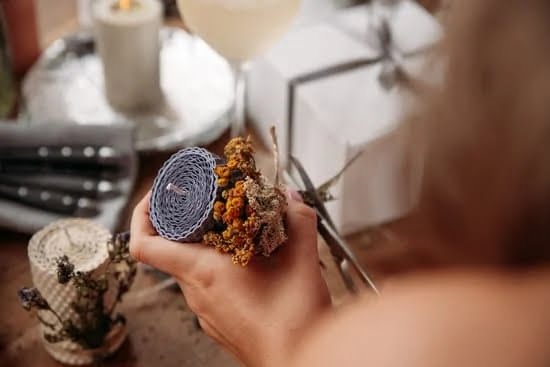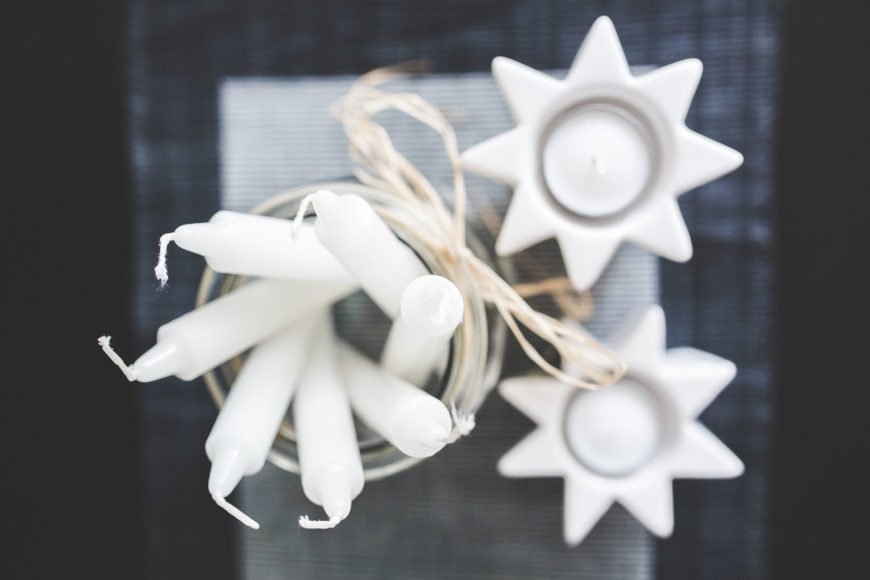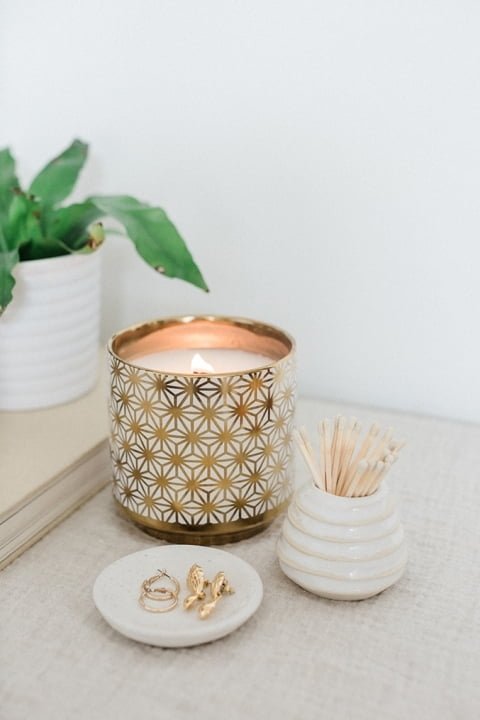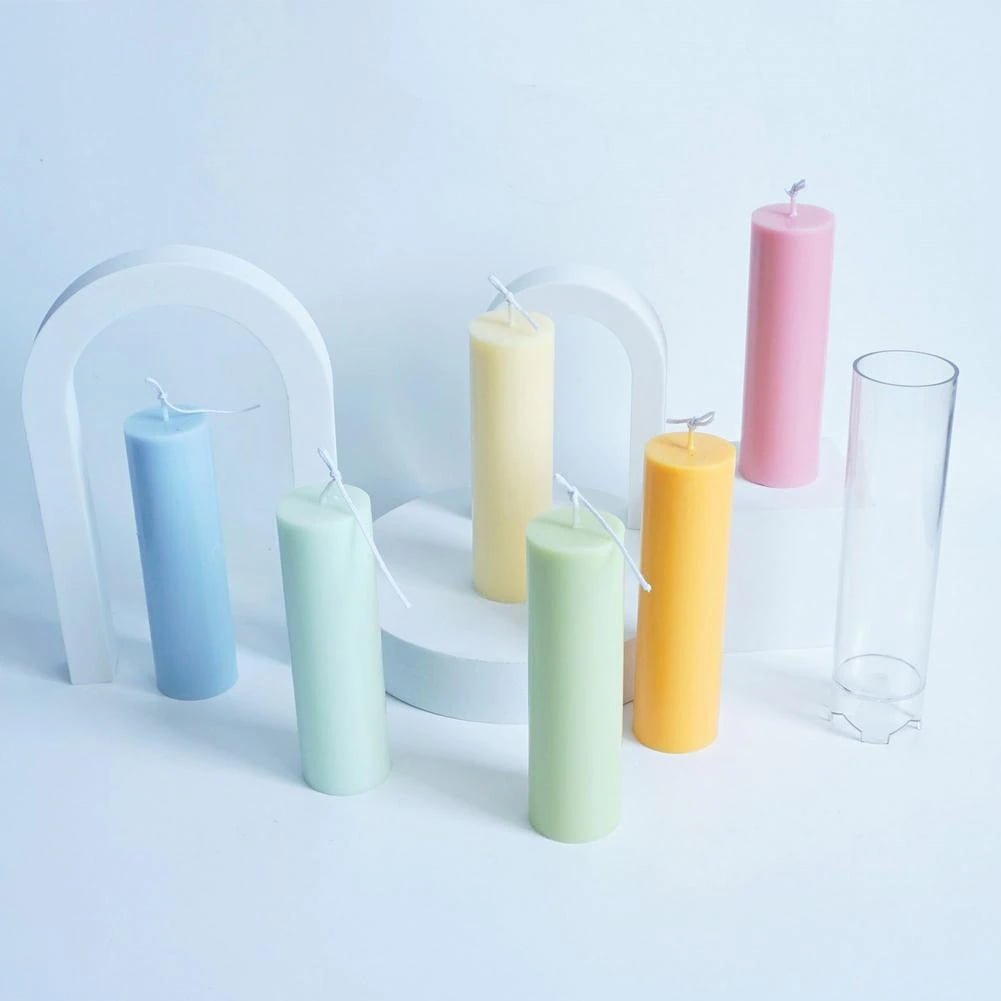Introduction
Making your own candle wicks from cotton provides many advantages, such as better control over the size and quality of the wick, lower cost than pre-made wicks, and assurance that you are using a sustainable material. Cotton is a natural fiber that has been used for centuries for making yarn and for other applications. Cotton has properties which make it well-suited for use in making candle wicks – it is highly absorbent; it will not melt or disintegrate when burned; it can stand up to high temperatures without any issues and will burn with an even heat.
When making your own cotton wick, you can choose the exact length that you want the wick to be. This allows you to customize the burning characteristics of any kind of candle, whether you are making a large pillar or an aromatic scented one. Cotton wicks also tend to produce less smoke while they are burning than wax-coated metal ones. Moreover, if you source organic cotton for your project, you will also be avoiding harsh chemical treatments which may be present in standard cotton fibers. In addition, since cotton is widely available and very affordable compared to other materials commonly used for making candle wicks like paper or steel wire, this makes it an ideal choice from both a financial and environmental perspective.
Benefits of Using Cotton for Candle Wicks
Using cotton for candle wicks offers several benefits. Cotton is a very sturdy material and provides long-lasting performance when used in the making of wicks. In addition, it burns cleanly, producing no soot or residue on the surface of the candle wax or container, unlike other materials. Furthermore, cotton is an eco-friendly alternative as it is biodegradable and can be reused up to five times before needing to be replaced. Finally, it is widely available and relatively inexpensive when compared to its alternatives such as hemp or linen. Overall, using cotton for candle wicks is an effective way to create beautiful and high-quality candles.
Essential Supplies and Equipment Required
Making candle wicks from cotton is a relatively simple process that can be done with minimal supplies and equipment. To start, you’ll need some natural cotton string or twine, which can be found in craft stores or online. You’ll also need something to hold your wick in place while it dries”a few common options are clothes pins, wooden skewers, or metal wick holders. Finally, to dip the prepared wick into melted wax and create your finished product, you’ll need a small container of wax”most hobbyists use soy wax flakes for their candles.
In order to begin making your candle wicks, cut the string or twine into desired lengths and tie one end around the top of whichever holding device you’re using. If you’re using a metal wick holder specifically designed for candles, make sure it’s secured firmly at the bottom of your chosen vessel like a jar or vase. Next, dip the prepped wick into melted wax until it has been completely saturated from one end to the other. Once dipped, hang your wick away from direct sunlight and allow it to dry for 24 hours before trimming any excess string off the bottom. Then you’re ready to finally make some candles with your own hand-crafted piece of art!
Exploring Different Types of Cotton for Candle Wicks
When making DIY candles, the first steps involve gathering the appropriate materials; this includes wicks. For a safe and efficient candle burning experience, choosing the right type of cotton for your wick is essential. Cotton-based wicks are known to be not only safe but also highly effective in delivering an even flame. There are many different types of cotton out there, each with its own characteristics that can affect how your finished product will burn.
Some of the most popular types of cotton for candle wick purposes are: all-cotton wicking cord and natural flat cotton braid cord. The all-cotton wicking cord is great for general candle use due to its thinner structure and lower SAP rating, which means it requires less energy and wax to produce a greater flame intensity. Natural flat braided cords are preferred among larger jar candles or larger containers due to their much thicker composition; they require far more heat from a flame in order to set off an extensive burning process but provide the perfect amount of combustion time for large candles.
Aside from these two types of cotton, you can also opt for cotton pre-tabbed wicks if you’re looking for a low maintenance approach in your DIY candle journey. These ready-made wicks come with a pre-assembled metal base that allows them to be easily placed into any type of pouring wax container without requiring additional string attachments or support methods ” genius! Additionally, zinc core and paper core tabs allow improved capabilities when stubbornly or heavily scented products like soy wax or beeswax are used as the supporting ingredient within candling projects ” adding extra value by allowing prompt ignition while maintaining minimal effort implement.
Step-by-Step Guide to Making Candle Wicks From Cotton
1. Start by gathering materials – You’ll need cotton string, white school glue, scissors, and a ruler to make your candle wicks.
2. Measure the desired length of your candle-wick depending on the size of your candle. Use a ruler to make sure your strings are the same length (around 3” or 7 cm.) and cut with scissors.
3. Once you have the correct number of strands for your candle-wick, lay them side-by-side in pairs on a clean surface such as a table or cutting board.
4. Squeeze a generous amount of white school glue along each strand then carefully twist them together until they are completely bonded. Use your fingers to massage through any additional glue that oozes out to ensure that all parts are connected together securely.
5. Allow some time for wicks to dry completely before use; 1-hour should be enough. This ensures that they will not unravel when inserted into the hot wax later on and burn uniformly without any issues during use.
6. After drying, carefully insert the ends of your homemade wick into the center of the prepared wax candles at both ends until they stay upright without additional support from other materials like paperclips or chopsticks
Tips and Tricks for Making Candle Wicks
Making candle wicks can be a tricky process, so it’s important to get it right. Using cotton thread to make the wick is a great option, as it’s relatively easy to work with and won’t release toxins into your candle. The most important thing to remember with these wicks is that you’ll need to soak them in wax before you use them in your candles to ensure they remain rigid when lit. To create the best possible future for your cotton wicks, here are some tips on how best to prepare them:
1. Start by selecting a high-grade cotton thread in the length dowel you desire. Make sure that the size of the thread corresponds with size of the container you plan on using for your candle.
2. Next, dip one end of the thread into melted wax and allow it to cool and accumulate a wax coating. This will ensure a better burning experience, as it will prevent breakage during use.
3. Finally, place the coated wave onto cardboard or other non-flammable material before allowing it to dry completely before adding any further embellishments if desired (for example: wrapping silk pieces around). Ensure that all dried decorations are non-flammable too. Once dried, insert your newly created wick into the appropriate container and repeat until all your candles are ready!
Storage Ideas for Cotton Candle Wicks
When making homemade candles, the cotton wick is a key component. While it’s important to have quality cotton wicks on hand, it’s also important not to let them get damaged or dirty while they are in storage. Here are some ideas for storing your cotton candle wicks:
1. Hang them up. You can hang the cotton candle wicks inside a closet with some clothespins or hooks. This allows the wicks to be suspended in air and keeps them away from any dust or dirt that may be present on surfaces like shelves or tables.
2. Store them in an airtight container. An empty mason jar with an airtight lid works well for this purpose. Air will still be able to circulate, but dirt and other particles won’t be exposed to the delicate strands of your cotton wicks.
3. Place your candle wicks in a resealable plastic bag. For maximum protection against dust and dirt, place your candle wicks in a zipper-lock bag and squeeze out as much air as possible when sealing it shut. This will keep the moisture levels low and protect your candle wick until you need it again for your next project!
Creative Ways to Decorate Using Cotton Candle Wicks
Cotton candle wicks can make for an incredibly attractive way to spruce up your home’s interior design. For example, you can use the cotton wick to make custom lacy designs and patterns on sheer fabric like window curtains or couches with the help of a hot glue gun or a needle and thread. Whenever the light sources reflect off of the intersecting lines of your handmade wick pattern, it creates a dreamy atmosphere throughout the room.
You can also create shadows with your cotton wick craft by attaching it differently at each end. When placed in front of indirect lighting, such as against a wall lamp or overhanging lights, the longer strings of your handmade cotton wick cast long-distance shadows across the room – adding different depths and interest points to every wall and ceiling surface! Additionally, weaving intricate webs with strands of cotton wicks near open windows allows for beautiful sunrays to filter through freely without overpowering light flooding into your space. With all these inventive ideas, making your own custom candle wicks from nothing more than raw cotton can really transform any living area into something artful and unique!
Conclusion
Making candle wicks from cotton is a great way to create a beautiful, custom-made candle. Cotton can be used to make wicks that last longer and burn more evenly than their synthetic counterparts. Cotton also provides a much softer, warmer light for candles, perfect for those who enjoy the soft glow of a lit flame. Not only does cotton make excellent wicks, it can also be used to embellish the finished product. This can be done by tying off the ends of the wick with an attachable charm or ribbon, using string or twine to create a patterned design throughout the body of the candle, or adding an extra layer of decoration with colored ribbons or lace.
Using cotton to make candle wicks is easy and affordable, allowing you to give special handmade gifts without breaking the bank. Plus, candles made with cotton are sure to please any recipient due to their unique beauty and appealing aroma! No matter how they’re used, candles made from cotton can bring light and joy into any space ” making them perfect for celebrating special occasions or simply bringing warmth into your home.

Welcome to my candle making blog! In this blog, I will be sharing my tips and tricks for making candles. I will also be sharing some of my favorite recipes.





